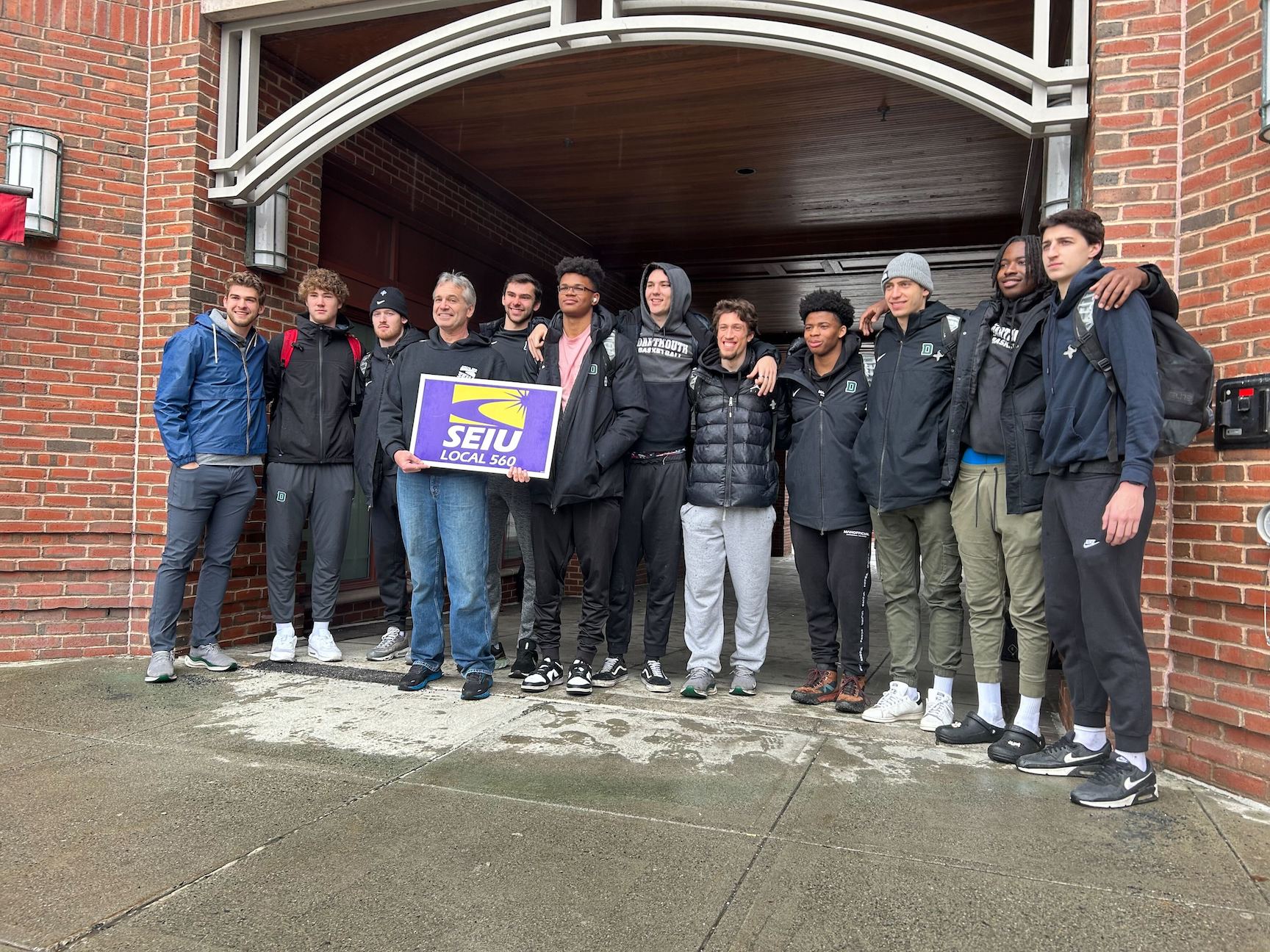The Ivy League is backing Dartmouth in its legal quest to prevent college athletes from being considered employees.
On Tuesday, the conference filed an amicus brief with the National Labor Relations Board in support of Dartmouth’s position that athletes should not be allowed to unionize or receive university employee status. The school is currently in the process of appealing a February ruling stating men’s basketball players are professionals, allowing them to vote to join a union. (The players voted in March, 13–2, to join their local chapter of the Service Employees International Union.)
The entire appeal, which includes not just the Ivy League’s brief but also a multipronged strategy from Dartmouth, is yet another desperate attempt to preserve amateurism. Notably, both the Ivy League and Dartmouth have hired notorious anti-union law firms to do their bidding: Cozen O’Connor and Morgan Lewis & Bockius (who is also representing USC in an NLRB case over whether football and basketball players should be considered employees). At Dartmouth, SEIU Local 560 president Chris Peck previously told Front Office Sports he has never seen the school fight the certification of a union this hard.
The 28-page brief, reviewed by FOS, called the NLRB regional director’s decision “tortuous” and peddled the same anti-employment arguments that were already rejected. The Ivy League claimed its schools do not control athletes in a way that mirrors employment, nor do they provide adequate compensation. Instead, the conference argues that Ivy League athletics is more similar to an extracurricular activity than professional employment—an assertion that has been challenged not only in this case but also in the USC case.
Allowing athletes to be considered employees could “threaten the continued existence of intercollegiate sports in athletic conferences, like the Ivy League, which put academics at the forefront of the student’s college experience,” the brief says. In the Ivy League’s view, athletes would be incapable of focusing on academics if they got paid to play sports.
The brief goes on to suggest that Ivy League athletics do not benefit universities themselves, specifically citing the fact that Ivy League sports don’t turn a profit. “Much of the rhetoric surrounding the amateurism model stems from a misconception that student-athletes are exploited for the benefit of the institution,” the brief says. “In contrast, the Ivy League model enhances the experience of its student-athletes, including by placing academics before athletics.”
It’s unclear when there will be another ruling. The process could easily extend to the end of the year, as the NLRB’s national board must first decide whether to hear the appeal in the first place. After all, dragging out the appeals process is part of the school and conference’s strategy.





![[Subscription Customers Only] Jun 15, 2025; Seattle, Washington, USA; Botafogo owner John Textor inside the stadium before the match during a group stage match of the 2025 FIFA Club World Cup at Lumen Field.](https://frontofficesports.com/wp-content/uploads/2026/02/USATSI_26465842_168416386_lowres-scaled.jpg?quality=100&w=1024)
![[Subscription Customers Only] Jul 13, 2025; East Rutherford, New Jersey, USA; Chelsea FC midfielder Cole Palmer (10) celebrates winning the final of the 2025 FIFA Club World Cup at MetLife Stadium](https://frontofficesports.com/wp-content/uploads/2026/02/USATSI_26636703-scaled-e1770932227605.jpg?quality=100&w=1024)










